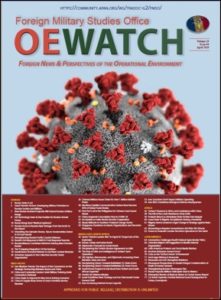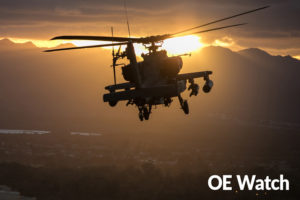Posts Tagged ‘intelligence’
OE Watch, Vol. 10 (Iss. 04)
As Russia gears up to celebrate the 75th anniversary of its “Great Patriotic War” in May, efforts to develop a state ideology based on “military patriotism” are apparent (“Great Patriotic Victory: Developing Military Patriotism in Russian Society and Military”). The April issue of OE Watch also continues to look at the Russian military’s improved combat…
READ STORYOE Watch, Vol. 10 (Iss. 03)
This issue of OE Watch looks at how Russia is investing heavily in and incorporating emerging technologies in deterrence, anti-access and area denial (“The Role of the S-350 Vityaz in Russian Air Defense”) as well as direct/indirect fire (“The 3BM44 ‘Lekalo’ Fin-Stabilized Subcaliber Projectile”; “Russia’s Spetsnaz to Get New ‘Flying Tank’ Special Operations Helicopter”). Meanwhile,…
READ STORY

